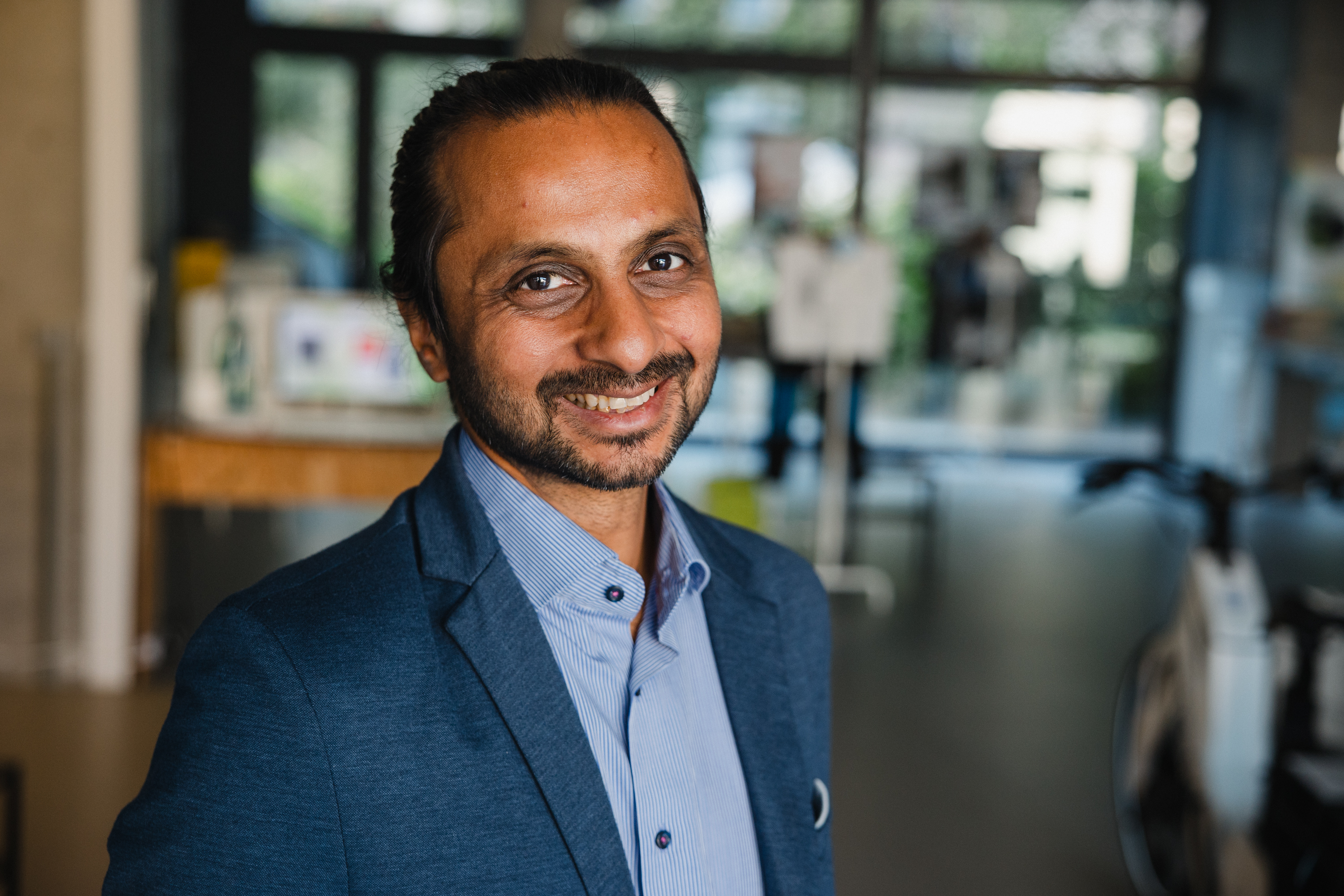
In order to be able to decide on the awarding of the German Ecodesign Award, we draw on the knowledge and wide range of proven experts. The evaluation of, among other things, innovative content, design quality and environmental characteristics is therefore carried out in a two-stage process, in which a panel of experts first decides which competition entries will be admitted to the jury session. The interdisciplinary jury then meets to select nominees and award winners in the categories of product, service, concept and young talent. More than one winner may receive the award in each category.
Siddharth Prakash is Head of Subdivision Circular Economy and Global Value Chains at the Öko-Institut e.V. in Freiburg. His research focuses, among other things, on "Sustainable Consumption and Products" and "Material Flows". In 2023, he will be part of the jury of the German Ecodesign Award for the first time.
Please tell us something about yourself and your work at Öko-Institut e.V. What gives you drive in your job?
Our consumption of resources is at a very high level. This high consumption of resources is the main reason for the triple crisis of our time - the climate crisis, species extinction and environmental pollution. I am driven by the question of how materials and products can be kept in cycles for as long as possible and how the transformation of our society away from a linear industrial model towards a circular economic system can be shaped. In my role as Head of Circular Economy and Global Value Chains, I try to bring together different perspectives, namely policy instruments, consumer acceptance, product design and corporate responsibility, in a national, European and international context. This is because many conflicts of goals and interests await us on the path to a Circular Economy. The structural change will only succeed if we can establish a common understanding and a common vision in the global context of the Circular Economy.
What convinced you to be a member of the jury for the German Ecodesign Award?
Sustainable product offerings and business models need political support to become competitive and marketable. The current landscape, in which the environmental and social costs of products and consumption are largely externalised, does not create a level playing field for circular products and business models. Beyond the change in the economic framework conditions for circular product design, politically supported communication about sustainable and future-oriented product offerings is very important. For innovative companies, such support creates incentives and perspectives to further engage in the field of "sustainable products". In my view, the German Ecodesign Award is exactly the platform that companies of a circular future need to get recognition for their innovations and efforts.
What are the no-gos for you when evaluating projects?
Bogus solutions and untested "green claims" for marketing purposes only. Circular economy and circular business models are currently en vogue and fashionable terms. Much is communicated about the circularity of products and business models without having scientifically and professionally examined the actual environmental benefits for society. The strategy of material substitution is a prime example - in many cases, the substitution of a material only shifts the environmental burden between different environmental categories. A holistic, scientific life cycle assessment is needed to evaluate the environmental benefits of a product.
A look into the future: When you think of ecological design - where, in which areas or industries, do you still see the most potential for development?
In the spirit of a holistic circular economy, I see the greatest potential in solutions that contribute to slowing down and reducing resource flows, in other words, in product offerings and business models that lead to lower consumption overall. We need durable, repair-friendly and reusable product designs to be the norm and not just a niche.